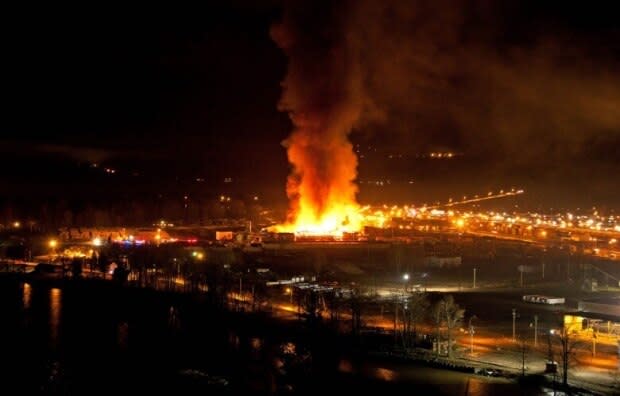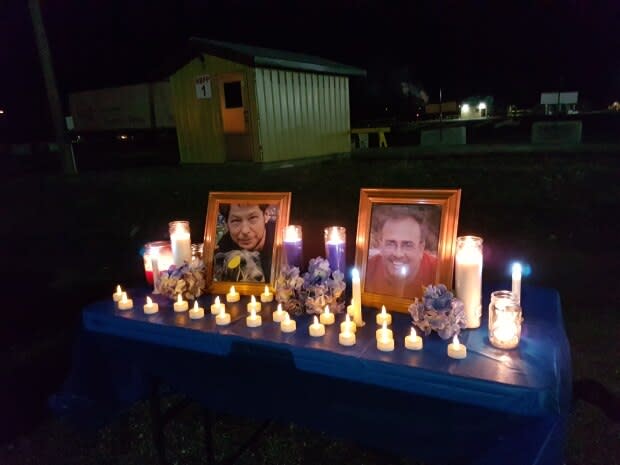Recommendations from B.C. sawmill explosions report a positive step, says union
The union representing mill employees affected by two B.C. sawmill explosions in 2012 supports the recommendations made in a recent report on the deadly incidents.
Vancouver lawyer Lisa Helps was asked to assess how worker safety recommendations were implemented by the B.C. government and WorkSafeBC in the aftermath of the explosions.
Her report recommends a more streamlined investigative process and new ways for workers to report safety concerns.
Steven Hunt, a director with the United Steelworkers union who represents the mill employees affected by the explosions, says Helps' recommendations are a positive step forward for workers' rights.
"Unfortunately it took four deaths and very serious injuries and damage to a lot of people at both Prince George and Burns Lake for the Workers' Compensation Board [also known as WorkSafeBC] and others to act. Unfortunately it took a tragedy to create this," Hunt told Carolina de Ryk, host of Daybreak North.

Two people died and 19 were injured in an explosion at Babine Forest Products in Burns Lake in January 2012.
Three months later, two people died and 44 were injured in a similar explosion at Lakeland Mills in Prince George.
WorkSafeBC concluded the blasts were triggered by an unsafe buildup of sawdust.
According to Helps, an ombudsperson could assist workers, explain procedures and processes, and be able to provide a bridge to WorkSafeBC for workers' ongoing input into safety processes.
She recommended that workers who were affected or raised concerns around safety in the workplace have their voices recorded.
Even though there was a WorkSafeBC investigation and coroner's jury report after the two explosions, mill workers were left out of the process, says Hunt. He says many of those workers are dealing with trauma.

'Blowing the whistle'
Hunt says the report's recommendations call for the improvement of three areas of workers' rights: the right to refuse, the right to participate and the right to know.
"Those rights are terribly underutilized," said Hunt.
He says the union called a WorkSafeBC confidential line to report concerns about a dangerous buildup of dust in their workspace.
WorkSafeBC turned the tape over to the workers' employer to listen to. Hunt says this should not happen, and it would not with an ombudsperson.
"Workers oftentimes are not comfortable blowing the whistle ... and when the cycles in the resource industry are down, people are afraid for their jobs. I sometimes call it economic heroin. People go to work when they know it's unsafe and they rely on people that help like the Workers' Compensation Board."

Work refusal
According to Helps' recommendations, if a worker refuses a job because of safety concerns, the workplace cannot assign someone else to do the job unless that person is familiar with it and knows the reason for the previous refusal.
"So, you just can't shut a job down for a short period of time and then assign somebody else ... which has been a chronic problem for years. So that recommendation is very helpful, I believe," Hunt says.
While the United Steelworkers union is pleased with the report recommendations, Hunt says there is more to be done.
"I'll be more comfortable once the laws are put into place. We as workers are not done until all the laws are actually changed."
Listen to the full interview with Steven Hunt here:


